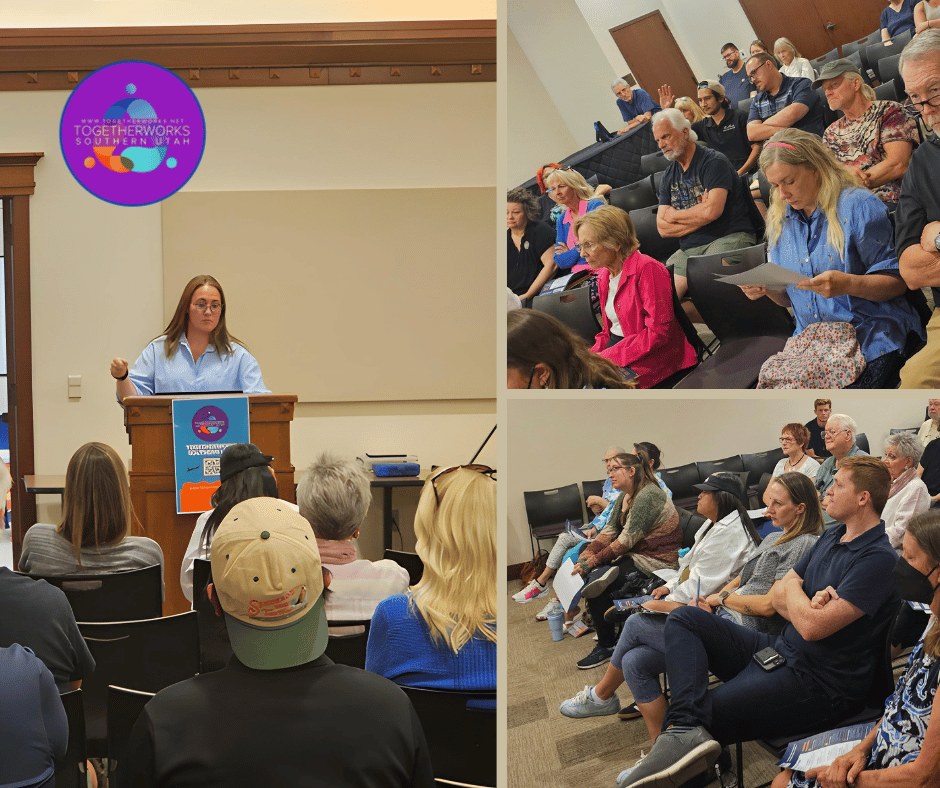“Rather than respect the will of the voters, those in power manipulated the process to preserve their dominance,” she said. “This isn’t just about redistricting—it’s about the integrity of our democratic institutions.”
Elizabeth Rasmussen, Executive Director of Better Boundaries, recently provided an update on Utah’s ongoing gerrymandering lawsuit during a presentation at the St. George Library.
In 2018, Utah voters passed Proposition 4, a bipartisan ballot initiative that created an Independent Redistricting Commission through legislative compromise. The Commission was composed of both Democratic and Republican community members and was tasked with proposing fair and representative voting district maps.

However, in 2021, the Utah Legislature overturned the Commission’s proposed maps and implemented its own version—districts that critics argue were drawn to entrench partisan power. Notably, Salt Lake City was divided into four separate districts, a move seen as diluting urban voices and strengthening Republican representation at both the federal and state levels.
In response, the League of Women Voters of Utah and Mormon Women for Ethical Government filed a lawsuit, which has been working its way through the courts. On July 11, 2024, the Utah Supreme Court issued a significant ruling: the Legislature cannot unilaterally alter citizen-led reforms to state governance. The case has now returned to District Court, where Judge Gibson is expected to issue a decision soon.
If the plaintiffs prevail, the result could be the redrawing of Utah’s political maps—though the Legislature would likely appeal, potentially delaying action until after the next census. A partial win might reinstate Proposition 4 and possibly trigger the drafting of new district maps.
However, if the court sides with the Legislature, it could set a precedent making future citizen initiatives more difficult, particularly if a proposed change requiring a 60% supermajority vote for ballot initiatives is enacted.
Rasmussen emphasized the broader implications, stating that the Legislature’s actions reflect a resistance to direct democracy. “Rather than respect the will of the voters, those in power manipulated the process to preserve their dominance,” she said. “This isn’t just about redistricting—it’s about the integrity of our democratic institutions.”



